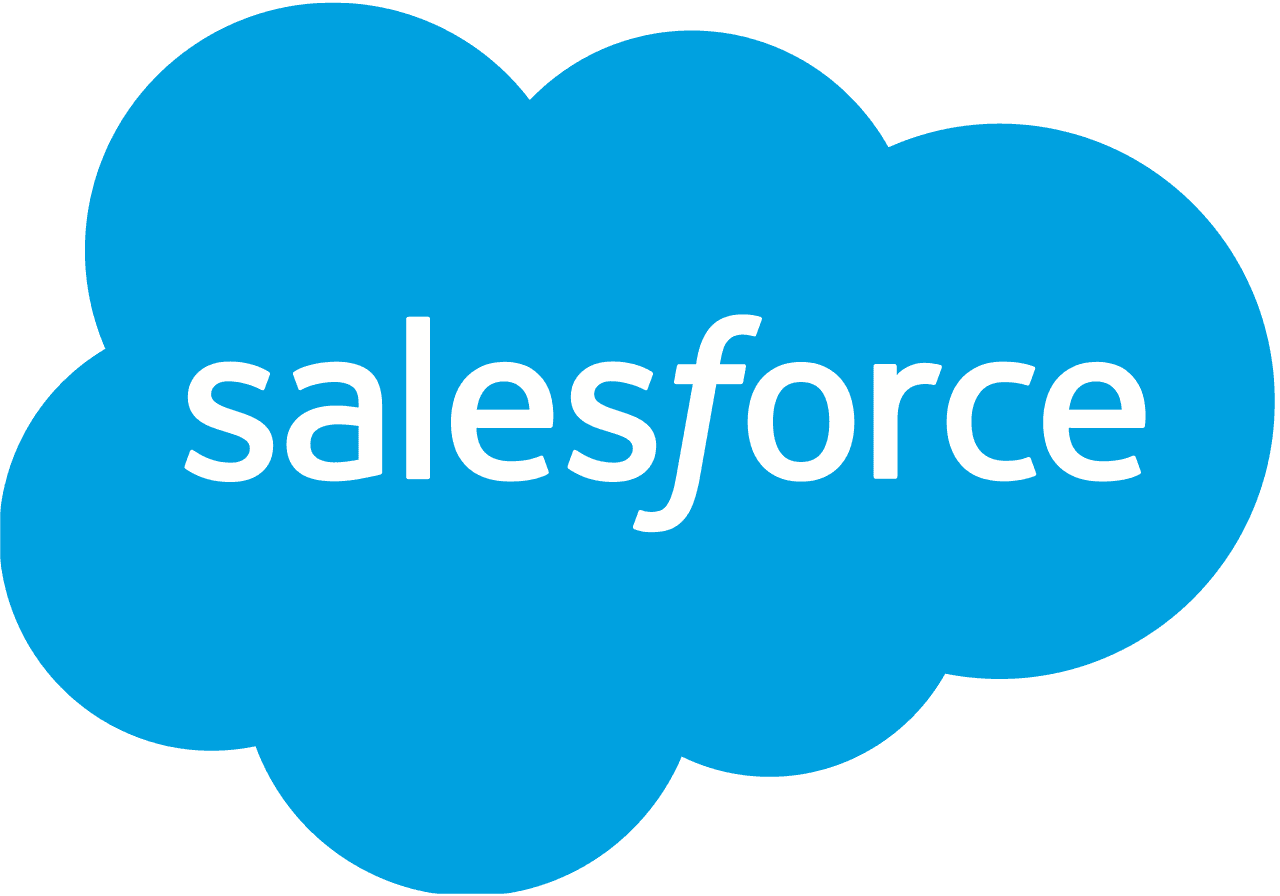

Business.com aims to help business owners make informed decisions to support and grow their companies. We research and recommend products and services suitable for various business types, investing thousands of hours each year in this process.
As a business, we need to generate revenue to sustain our content. We have financial relationships with some companies we cover, earning commissions when readers purchase from our partners or share information about their needs. These relationships do not dictate our advice and recommendations. Our editorial team independently evaluates and recommends products and services based on their research and expertise. Learn more about our process and partners here.
Salesforce vs. monday Comparison
Salesforce and monday are popular CRM platforms for small businesses. Here's how they compare.



Table of Contents
Customer relationship management (CRM) software is no longer a “nice-to-have” component of your company’s tech stack. Today, businesses need CRM software to navigate an increasingly competitive marketplace and consolidate customer data. Salesforce Sales Cloud and monday Sales CRM give businesses a 360-degree view of their customers. This way, they can tailor personalized experiences, forecast predicted behavior and make data-informed business decisions. We’ll compare each platform’s pricing, features and usability to help you find the right CRM software for your needs.

Salesforce Sales Cloud vs. monday Sales CRM Highlights
With robust feature sets, Salesforce and monday Sales CRM are two of the best CRM solutions available. However, distinct differences may make one or the other the better choice for your business.
Criteria | Salesforce Sales Cloud | monday Sales CRM |
|---|---|---|
Starting prices | $25 per user, per month | $9 per user, per month (billed annually; minimum of three users) |
Sales forecasting features | Requires Pro Suite, Enterprise, Unlimited or Einstein 1 plan | Requires Pro or Enterprise plan |
App integrations | Over 4,000 | Over 200 |
Custom automations | Starting at five flows per flow type (increasing with higher tier plans) | Starting at 250 actions per month for Standard plans (increasing with higher tier plans) |
AI features | Requires Unlimited plan for full capacity (basic AI features available in lower tiers) | In beta testing (opt-in available) |
Ease of use | Challenging, requires more technical knowledge and/or admin support | Easy to use |
Who Is Salesforce Sales Cloud For?
Salesforce Sales Cloud is highly customizable and flexible, which makes it ideal for medium-to-large tech-savvy businesses that can use the solution to its full potential. Its vast integrations and add-ons can help businesses create a tailored solution for highly specific processes and industries; it can then share that solution across divisions and departments. Additionally, Salesforce Sales Cloud is an excellent choice for growing companies that need a scalable CRM. For more details about Salesforce Sales Cloud’s capabilities, read our in-depth Salesforce CRM review.

Salesforce Sales Cloud has multiple add-ons and integrations that help businesses create a custom solution. Source: Salesforce
Who Is monday Sales CRM For?
monday Sales CRM is a budget-friendly CRM ideal for smaller businesses or individual teams within an organization. For example, sales teams can invest in the solution to streamline their department and gain a comprehensive customer journey overview. Marketing departments and customer support teams can also benefit from monday’s insights. Companies that choose monday will benefit from greater visibility into the sales funnel and specific operations to inform decisions. Read our detailed overview of monday’s features and functions in our monday Sales CRM review.

monday’s app marketplace helps you find integrations with the business software you already use. Source: monday
Salesforce Sales Cloud vs. monday Sales CRM Comparison
Salesforce and monday are both great companies with excellent reputations and similar feature sets, which means they’re difficult to compare. However, the following lists illustrate their differences.
Pricing
Affordability is a huge concern for many small businesses. However, larger enterprises may find Salesforce’s features worth the extra costs.
Salesforce Sales Cloud Pricing
Salesforce has five service levels for businesses:
- Starter Suite: $25 per user, per month (billed annually). The Starter Suite plan has account, contact, lead and opportunity management features. It also features email integration with Gmail and Outlook.
- Pro Suite: $100 per user, per month (billed annually). The Pro Suite plan has everything in the Starter Suite plan, plus sales quoting and forecasting, real-time chat, and additional customization and automation features.
- Enterprise: $165 per user, per month (billed annually). The Enterprise plan includes everything in the Pro Suite plan, plus advanced sales pipeline management and deal insights, conversation intelligence, and built-in artificial intelligence (AI) sales agents (Agentforce).
- Unlimited: $330 per user, per month (billed annually). The Unlimited plan includes everything in the Enterprise plan, plus premier support and sales engagement tools based on conversation intelligence.
- Einstein 1 Sales: $500 per user, per month (billed annually). The Einstein 1 — the name of which refers to Salesforce’s AI technology — includes everything in the Unlimited plan, plus unified data and CRM integration availability.
Salesforce also offers various flexible add-on features for additional costs, including the following:
- Configure, Price and Quote (CPQ): from $75 per user, per month
- Einstein for Sales: from $75 per user, per month
- Revenue Intelligence: from $220 per user, per month
monday Sales CRM Pricing
monday has four service plans:
- Basic: $9 per seat, per month (billed annually). There’s a three-seat minimum, which means your starting price will be at least $27 monthly. This package includes unlimited customizable pipelines, contacts and boards; lead, contact and deal management templates; one dashboard; and iOS and Android mobile apps.
- Standard: $12 per seat, per month (billed annually). There’s a three-seat minimum, which means your starting price will be at least $36 monthly. The Standard package includes everything in Basic, plus advanced contact and deal management; quotes and invoices; two-way email integration; five dashboards; and custom CRM automations and integrations.
- Pro: $19 per seat, per month (billed annually). There’s a three-seat minimum, which makes your starting price at least $57 monthly. This plan includes everything in Standard, plus sales forecasting, email tracking, mass emails, sales analytics and more.
- Enterprise: You’ll need to contact the company for a custom quote for this plan. Added features include lead scoring, advanced analytics, enterprise-grade security, HIPAA compliance and more.
CRM Features
Here’s how Salesforce and monday compare in essential CRM features.
Salesforce Sales Cloud Features
- Part of the Salesforce ecosystem: Salesforce Sales Cloud is part of a vast Salesforce ecosystem that includes product categories like Marketing Cloud and Commerce Cloud. As your business grows, you’ll have easy access to the advanced solutions you need.
- Customization: Salesforce Sales Cloud is highly customizable. You can change how dashboards look, set object controls to customize the system and use a developer console to create custom apps.
- Productivity tools: Salesforce includes productivity-boosting tools like built-in automation and AI-driven insights, project management features, and visual dashboards that make it easy to monitor KPIs.
- Integrations: Businesses can access a vast collection of integrations and add-ons through the Salesforce AppExchange store.
- Learning platform: The Salesforce Trailhead learning platform provides in-depth guides and resources for admins, direct communication forums, and comprehensive product-related courses and certification opportunities.

Trailhead is an interactive, self-paced online learning platform with modules, projects and super badges to help users improve their Salesforce skills. Source: Salesforce
monday Sales CRM Features
- Workflow automations: monday’s workflow automation features help teams minimize busy work and automate tasks like email responses, reminders, notifications and more.
- Lead management: monday’s lead management tools help sales teams generate quality leads, nurture those leads and boost lead conversions. You can also use lead scoring tools to ensure you’re focusing on the right prospects.
- Customizability: monday makes it easy to create customizable dashboards and sales workspaces that reflect your business needs.
- Integrations: monday has an extensive integration library to help you customize the solution and use your current business software to keep operations seamless. [Learn more about monday’s integrations]
- Learning platform: The monday Academy has free self-paced courses and on-demand webinars, along with live training.
AI Capabilities
AI is transforming industries, and the CRM space is no exception.
Salesforce Sales Cloud AI Capabilities
Salesforce’s groundbreaking AI tool, Einstein, is available on upper-tier plans or as a paid add-on. Einstein has generative AI abilities that can improve the sales process by creating emails, summarizing calls and generating data-driven text. Businesses can also leverage Agentforce (formerly known as Einstein Copilot), an AI-based platform with autonomous agents that can handle sales, marketing and customer support tasks.
Einstein’s AI functions go even deeper; they actively capture and sync sales information to keep your CRM updated, make predictions about sales forecasts, identify customer signals and more. Additionally, Salesforce’s AI Cloud is dedicated to integrating Salesforce technologies to provide secure, generative services for enterprises.
monday Sales CRM AI Capabilities
monday’s AI assistant is primarily used to do the following:
- Generate text, such as composing emails
- Build custom monday formulas
- Summarize larger bodies of text into comprehensive bullet points
Keep in mind that monday AI is still in beta testing, meaning you’ll need to opt in to leverage these features.
Ease of Use
Here’s how Salesforce and monday stack up regarding ease of use.
Salesforce Sales Cloud Ease of Use
Businesses can tailor Salesforce to fit their specific needs with highly advanced features. However, this customizability comes with a steep learning curve. IT professionals must make a significant time investment to configure the platform — especially with custom flows and integrations. Plus, you may need expert support to ensure it runs smoothly for your company.
However, this investment of time and money can be well worth it for businesses that can make full use of Salesforce’s features. Additionally, you don’t need to devise a complicated solution immediately; you can adjust the software and add features as you grow more comfortable with the system. Salesforce provides ample online resources to help you get started. You can also pay for extra guidance and coaching.
monday Sales CRM Ease of Use
monday users enjoy an easy learning curve and can use the software right out of the box. It has extensive online resources to help you get started and address any issues you encounter. Most businesses — even very small businesses — can get monday Sales CRM up and running quickly. Plus, it’s easy to manage the platform without expert guidance. Users who want to get the most out of the platform can access video tutorials and the monday Academy, which posts interactive courses and webinars.

monday Sales CRM has a clean, modern interface that’s intuitive to navigate and easy to learn. Source: monday
Salesforce Sales Cloud vs. monday Sales CRM Summary
Both Salesforce and monday are great choices. However, they’re best suited for different company sizes. While they share many core CRM functionalities, their unique feature sets make them ideal for the following companies.
Salesforce Sales Cloud is best for enterprises.
Salesforce Sales Cloud is a powerful CRM solution used by many large, enterprise-level companies across various industries. Salesforce offers an unparalleled suite of tools, integrations and advanced AI features, which make organizations operate more efficiently and effectively. Its plans may be cost-prohibitive for small businesses. However, large companies can expect a high ROI by shortening deal cycles, highlighting probable opportunities and automating many tasks.
monday Sales CRM is best for SMBs.
monday Sales CRM is a versatile platform that can unite different teams across a business to help make data-informed decisions. monday’s pricing is affordable for smaller businesses, while its many features will help midsize businesses level up in their industry. The software is easy to use. So, you can implement it quickly within your company and start improving your processes right away.
FAQs
Danielle Fallon-O’Leary contributed to this article.





